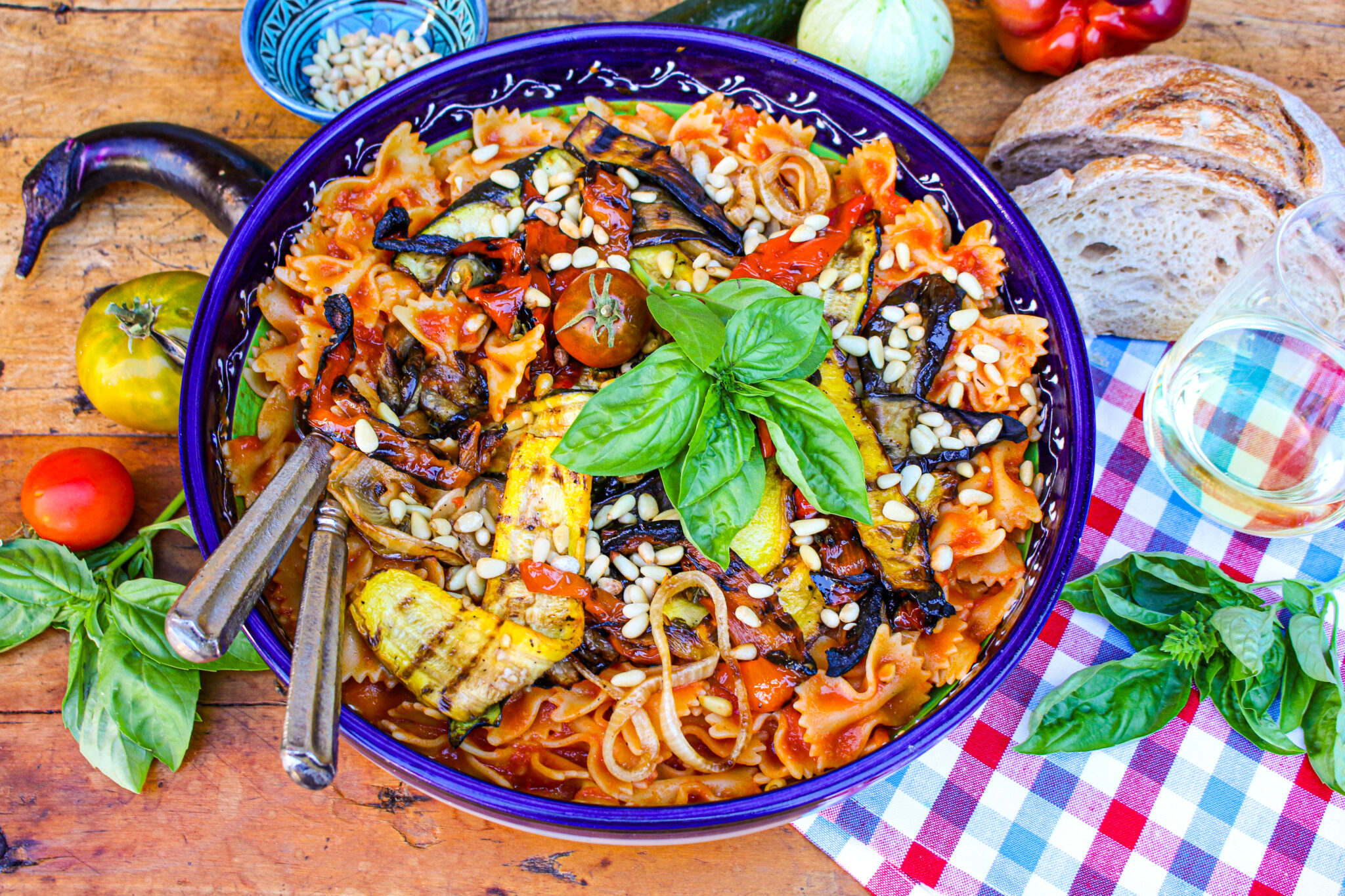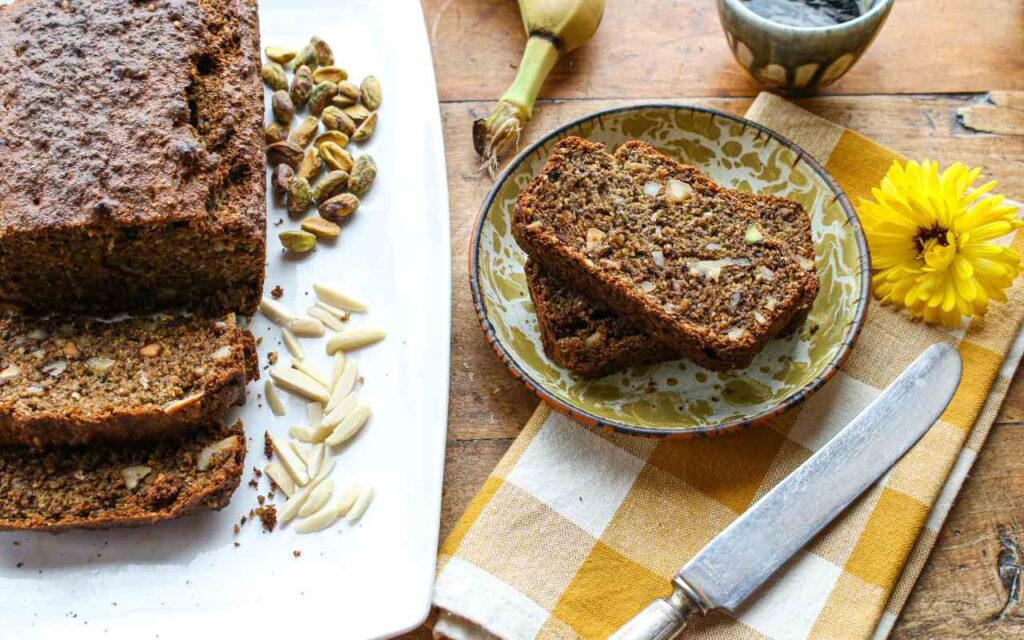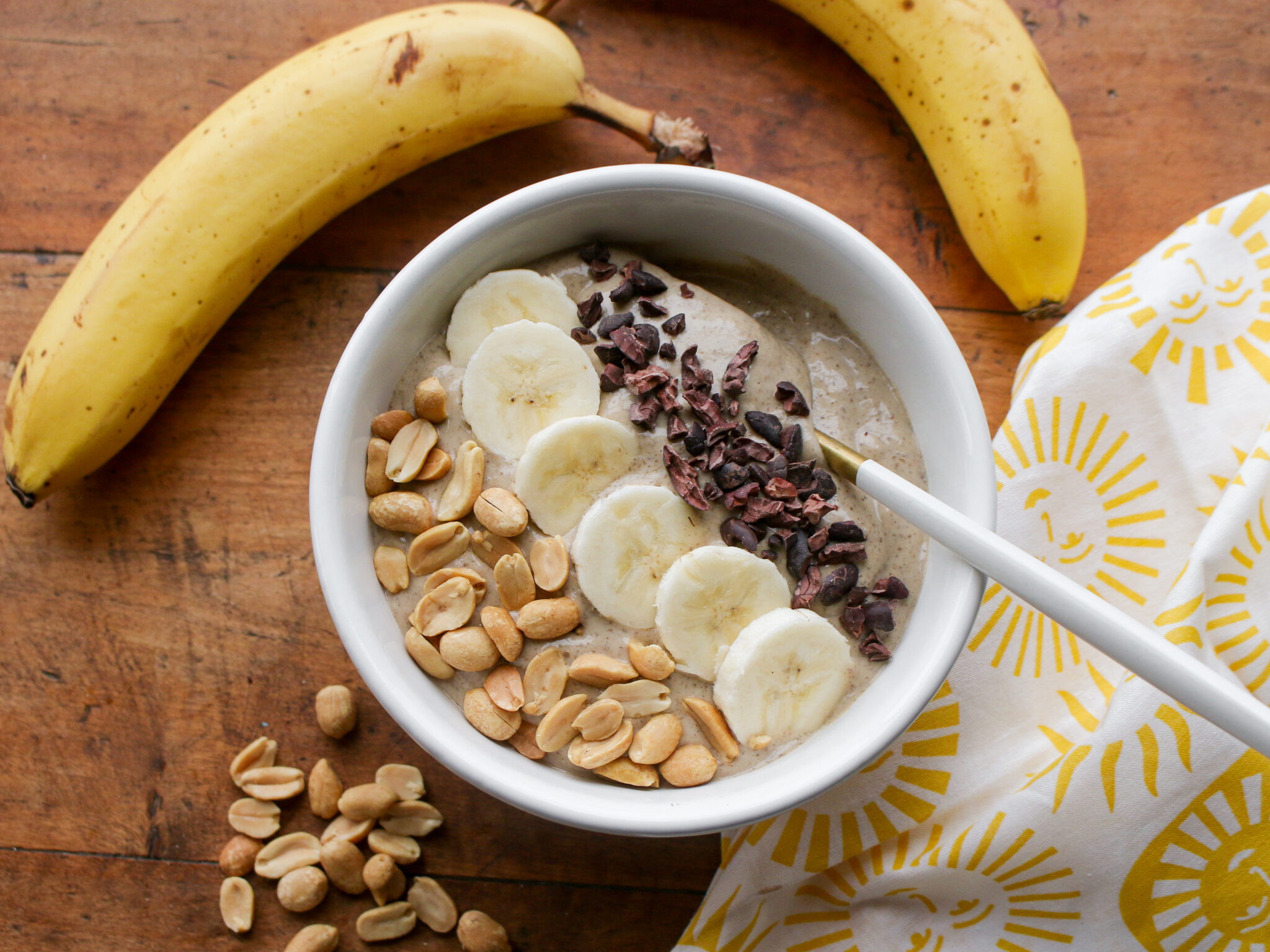Which foods should guys include for an ideal eating plan for men’s health? What are the ingredients for a men’s health plant based eating plan? I’m sharing my take on the top 9 plant based foods to promote optional men’s health. And check out this collection of top 10 plant-based recipes for men.
Hey guys, are you interested in staying healthy and fit for years to come? You’re never too young or too old to start a healthy eating plan to cut your risk of health conditions that can shorten your lifespan, as well as lower the quality of your life. According to the CDC, 15% of men 18 and older are in fair or poor health! Indeed, 42% of men 20 and older are obese and 51% of men 18 and older have hypertension (high blood pressure). The top two causes of death for men are heart disease and cancer. All of these conditions—obesity, hypertension, heart disease, and cancer—have a strong diet connection. A healthy diet filled with plant-based foods, such as beans, whole grains, veggies, fruits, nuts, and seeds, can help provide exceptional men’s health benefits, including heart protection and prostate cancer defense. Why? Plant-based foods are filled with nutrients that are health protective for men, including fiber to boost the gut microbiome, phytochemicals to boost antioxidant and anti-inflammatory action, healthy fats for good heart health, and a bounty of vitamins and minerals for healthy body functions. In fact, eating a diet filled with plant-based foods is linked with lower risk of heart disease, obesity, hypertension, type 2 diabetes, cancer (including prostate), and even erectile dysfunction. So, go ahead and dive into plant-based eating, starting with these top 9 foods for healthy eating for men’s health.
Healthy Eating for Men’s Health: Top 9 Plant-Based Foods

1. Tomatoes
Tomatoes provide a great source of the carotenoid lycopene in the diet. Studies suggest that lycopene may help prevent prostate cancer through its antioxidant action that might inhibit cancer cell proliferation. Cooked tomatoes, such as in canned tomato products or cooked tomatoes in a recipe, such as pizza, chili, and spaghetti increases the bioavailability of lycopene in the body. So, go ahead and enjoy tomatoes as the ultimate star in foods guys love. Canned, jarred, dried, and fresh tomatoes are all great options for health, bringing lots of flavor for hearty, delicious eating.
2. Green Leafy Vegetables.
Eating your greens means getting a healthy dose of vitamins, including vitamins C and K, and minerals, such as iron and calcium. But leafy greens are also packed with powerful plant compounds called carotenoids that work as antioxidants in the body, which have several health benefits, including inhibiting the growth of some cancers. Lutein, one of those carotenoids, may protect eyesight. As men grow older, it may come as no surprise that their vision may begin to decline. In fact, it is projected that the number of people over the age of 50 with macular degeneration (age-related vision loss) will double by 2050. Take care of your eyes by incorporating more lutein in your diet through foods like leafy greens, such as kale, spinach, and collards. Make sure to include plenty of hearty salads featuring leafy greens, add greens to smoothies, and include them in side-dishes and main dishes.

3. Coffee and Green Tea
Need another reason to justify your love of coffee? Research has found that people consuming coffee and green tea have lower incidence of prostate cancer. Experts speculate that the polyphenols found in these drinks have an antioxidant effect that helps rid the body of free radicals which are often associated with cancer onset. Studies also show that coffee drinkers may have a reduced risk of cardiovascular disease, type 2 diabetes, Alzheimer’s disease, Parkinson’s disease, and some cancers. So, go ahead and include moderate intake of coffee and green tea. Just be careful not to pile on the cream and sugar though, as that will add extra saturated fat and sugar grams to the diet. And be careful of excess caffeine intake to avoid sleep disruption.
4. Soy Foods
Rich in protein, fiber, and many important nutrients, soy foods should be a part of every guy’s diet. Research shows that men eating soy-rich diets may have a reduced risk of prostate cancer, as well as a lower risk of dying from certain cancers. Soy foods, including edamame, tofu, tempeh, and soymilk, are also a good source of calcium. While we often think that women are the only ones who face declining bone mass with age, bone health is just as important for men. Men reach their peak bone mass at around the age of 20. A diet rich in calcium and vitamin D (often fortified in soymilk) is essential in maintaining bone health. Men should consume at least 1,000 milligrams, or about two servings, of calcium-rich foods, like soy foods, daily. Incorporate edamame into salads, soups, or as a snack it on its own, try fortified soymilk with cereals and coffee, and add tofu and tempeh to stir fries, scrambles, and wraps.

5. Nuts
Almonds, pistachios, walnuts, cashews, peanuts—there are so many wonderful varieties of nuts to enjoy. The crazy part is how something that tastes so good can be so good for you! Nuts are packed with many important nutrients, but perhaps most notably, they’re a good source of heart healthy monounsaturated fatty acids. Research shows that eating nuts is associated with lowering blood cholesterol levels, triglyceride levels, and improved blood sugar levels, important in reducing risk of type 2 diabetes. So, go nuts! Whichever you choose and whether you eat them as a snack or stirred into a recipe, know that you’re doing something good for yourself. Just be aware of serving size, as a little goes a long way. One serving is about a quarter cup (1 ounce), or a handful. Try nuts in smoothies, cereal bowls, grain bowls, main dishes, and baked goods.

6. Flaxseeds
Adding flaxseed to your diet is another strategy to help support heart health. Rich in omega-3 fatty acids, flaxseeds may help lower cholesterol levels. Flaxseeds are also high in fiber, which means eating them helps you feel full. This can help with healthy weight management. You can easily incorporate ground flaxseed, which is easier to digest than whole flaxseed, into your daily routine. Start your day by adding it to your breakfast cereal, yogurt, or smoothie, mix it into salad and sandwich dressings and sauces, and add it as an egg replacement in veggie burgers or baked goods.

7. Oatmeal
Jumpstart your day with a bowl of oatmeal! Oatmeal is rich in beta-glucan, a fiber which helps lower cholesterol, making it a good choice for heart health. Fiber also is useful in helping you feel full for longer, which may prevent overeating later in the day, as well as helping regulate blood sugar. Men should strive to consume 38 grams of fiber daily. Add your favorite plant-based milk, fruit, nuts and spices to your morning bowl of steaming oatmeal. Or give oat milk a try, stir oats into baked goods, and go savory with oats in main dishes and side dishes.

8. Bananas
Consuming enough potassium each day is important for maintaining healthy blood pressure levels, which can help reduce your risk of hypertension and stroke. Fruits and vegetables, particularly bananas, are a great source of potassium (1 medium banana has 450 milligrams). Grab a banana for a mid-afternoon snack, puree banana into your smoothie, or top your oatmeal with flaxseed and sliced bananas in the morning and you will be well on your way to achieving the recommended 4,700 milligrams you need each day. (Hint: Those green leafy vegetables are also great sources of potassium!)
9. Avocados
These days, it’s all about avocados—and for good reason! When a food that tastes this good is even better for your health, it’s time to love it. Avocados contain nearly 20 vitamins, minerals, and phytonutrients, including potassium and fiber, which may reduce risk of heart disease and diabetes. They’re also a great source of heart-healthy monounsaturated fats. Creamy and rich in flavor, it’s easy to enjoy avocado on toast, in sandwiches and salads, in smoothies and guacamole.
Bonus: Don’t Forget Exercise
While a well-rounded, plant-rich diet is important for men’s health, every guy should add exercise as an important component for health. Men should shoot for 30 to 60 minutes of regular exercise per day. Aerobic exercise should be incorporated most days of the week with the addition of weight strengthening 2 to 3 days a week.
Top 10 Plant-Based Recipes for Men’s Health
Try these top recipes featuring foods perfect for men’s wellness goals.
For other eating tips for men’s health, check out:
Great Tips for Guys on Going Vegan
Top 10 Dietitian Tips for a Healthy Heart
Guys–Go Red to Fight Prostate Cancer
References:
- Academy of Nutrition and Dietetics. (2013). A to Avocados. Retrieved for https://www.eatright.org/resource/food/vitamins-and-supplements/nutrient-rich- foods/a-to-avocados.
- Academy of Nutrition and Dietetics. (2014). Bone health for men. Retrieved from https://www.eatright.org/resource/health/wellness/preventing-illness/bone-health-for- men.
- Academy of Nutrition and Dietetics. (2014). Choose healthy fats. Retrieved from https://www.eatright.org/resource/food/nutrition/dietary-guidelines-and- myplate/choose-healthy-fats.
- Academy of Nutrition and Dietetics. (2014). Healthy eating for men. Retrieved from https://www.eatright.org/resource/health/wellness/healthy-aging/healthy-eating-for- men.
- Academy of Nutrition and Dietetics. (2015). Heart health tips for men. Retrieved from https://www.eatright.org/resource/health/wellness/heart-and-cardiovascular- health/heart-health-for-men.
- Holzapfel, N. P., Holzapfel, B. M., Champ, S., Feldthusen, J., Clements, J., & Hutmacher, D. W. (2013). The potential role of lycopene for the prevention and therapy of prostate cancer: from molecular mechanisms to clinical evidence. International Journal of Molecular Sciences, 14(7), 14620-14646.
- Rein, D. B., Wittenborn, J. S., Zhang, X., Honeycutt, A. A., Lesesne, S. B., & Saaddine, J. (2009). Forecasting age-related macular degeneration through the year 2050: the potential impact of new treatments. Archives of Ophthalmology, 127(4):533–540.
- Vance, T. M., Su, J., Fontham, E. H., Koo, S. I., & Chun, O. K. (2013). Dietary antioxidant and prostate cancer: a review. Nutrition & Cancer, 65(6), 793-801.
[category: wellness]
[category: wellness]

